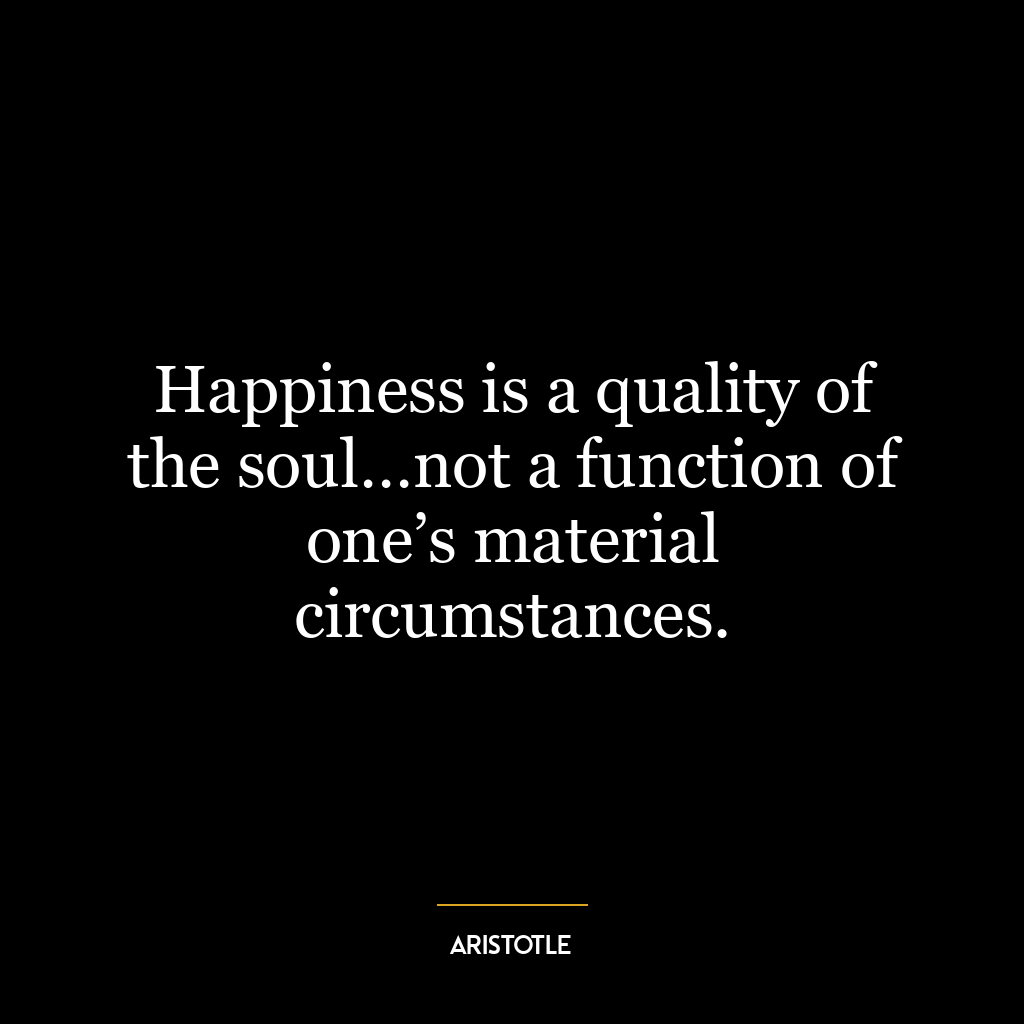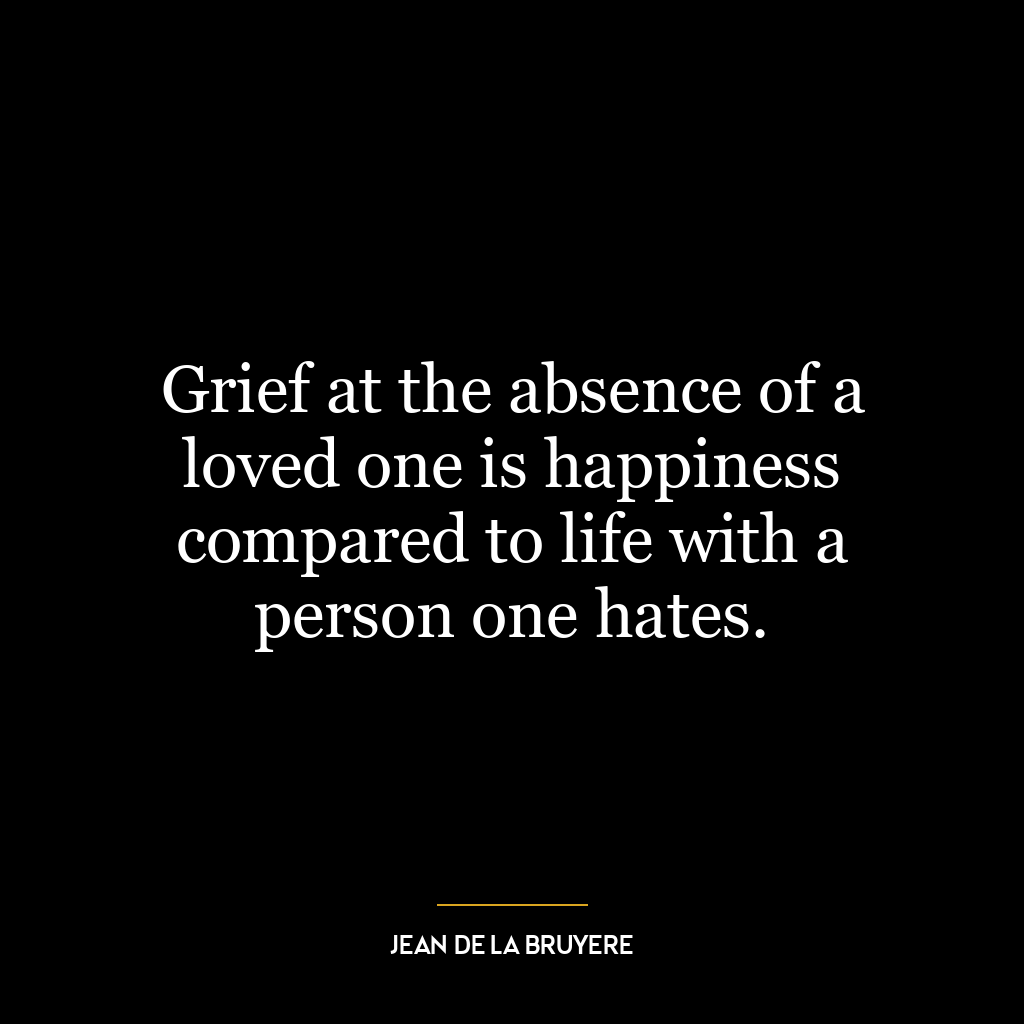This quote emphasizes that happiness is not derived from external, material conditions, but rather from the internal state of one’s soul. In essence, it suggests that happiness is an intrinsic quality, a state of being, rather than something that can be obtained or lost based on our material possessions or circumstances.
Aristotle’s perspective challenges the common notion that happiness is linked to wealth, status, or any other physical or materialistic aspects. Instead, he proposes that true happiness comes from within, from the quality of one’s soul. This implies that happiness is more about our attitudes, perspectives, and inner peace rather than what we have or do not have.
Applying this idea to today’s world, especially in the context of personal development, it emphasizes the importance of inner growth and self-awareness. In a society that often equates success and happiness with material wealth and status, this quote is a reminder to focus on nurturing our inner selves, our values, our character, and our spiritual growth.
In terms of personal development, this could mean focusing on qualities like kindness, empathy, resilience, and other aspects of emotional intelligence. It suggests that by improving these intrinsic qualities, we can achieve a state of happiness that is independent of our external circumstances.
Moreover, this perspective can also be a source of empowerment. It suggests that we have control over our happiness, as it is not dependent on external factors that are often beyond our control. It encourages us to seek happiness not in the external world, but within ourselves, in the quality of our souls.
In practical terms, this could mean practicing mindfulness, developing a positive mindset, cultivating gratitude, or seeking purpose and meaning in our lives, rather than pursuing materialistic goals. It’s about finding joy in who we are as individuals and the journey of personal growth, rather than the destination of material success.















